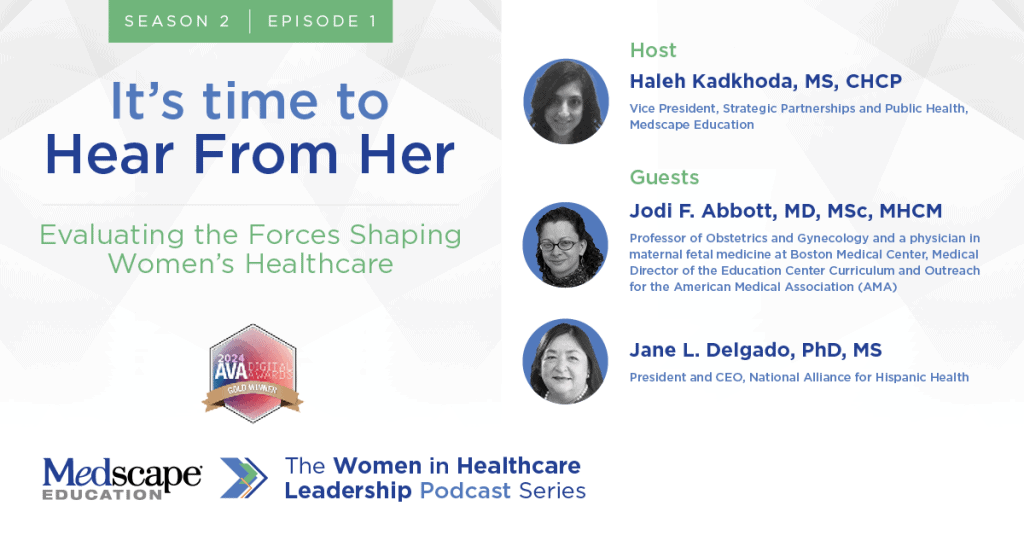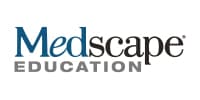Evaluating the Forces Shaping Women’s Healthcare
March 6, 2024 | Leadership, Women in healthcare
Gaps in women’s healthcare go beyond access and cost. Do clinicians have the tools they need to understand women’s health?

If there are any lingering doubts about how today’s healthcare system fails many women, a 2022 study from the Kaiser Family Foundation will set the record straight. Their report revealed that close to 20 percent of all women in the U.S. ages 18 and older considered their health fair or poor. Out of a population of 168 million women, that is a shockingly large number of people who feel less than well.
Drilling down by race and ethnicity, the numbers break out to 31% of American Indian and Alaskan Native women, 25% of Hispanic women, 23% of black women, 16% of white women, and 10% of Asian Native Hawaiian and other Pacific Islander women. The same study found that 10% of all women 18 and older did not see a doctor due to cost.
And here’s something else to consider, says Jane Delgado, clinical psychologist and President and CEO of the National Alliance for Hispanic Health. Even if you can afford it, if you have access to health insurance, “once you get through the door, does the person you see hear you? Does that person have the tools to understand women’s health? Are you getting the care you need, and does your healthcare provider have the tools and information they need?”
Not to mention the additional barriers of ethnicity and age that women often face, says Jodi Abbott, who has dual roles as Professor of Obstetrics and Gynecology and a physician in maternal fetal medicine at Boston Medical Center, and Medical Director of the Education Center, Curriculum and Outreach for the American Medical Association (AMA). Women’s complaints “are much less likely to be listened to, and they end up being underdiagnosed and undertreated for most conditions.” While you’re seeing a physician to try to feel better, “they are there to cross a disease off a list. There’s a mismatch between the hopes and expectations of many people who enter the system and how most physicians are trained. Our healthcare system is geared toward disease management, rather than addressing the elements that help keep people healthy.”
Abbott says she’s “privileged” to work at Boston Medical, which is an ACO, or accountable care organization. “The difference between that system and traditional insurance-based or fee-for-service systems is that our organization is set up to have a certain amount of money every year to keep people healthy as opposed to receiving money for how much time they spend in the hospital because of certain diagnoses. When we switched to that, it really opened the door to physicians and health care providers with the desire to widen their team—for example, to include non-physician team members—and to be able to focus on initiatives that can improve health, and not just those that identify complications.”
One example of this, says Abbott, has been a large investment in the community and in “nontraditional” mechanisms of health care, such as doulas—birth attendants who are not physicians, not nurses, “who represent the women in the communities that our patients come from. They are multilingual, and can have a personal connection, sort of a mother or auntie figure, but they also know how a hospital works and can guide people who are attending for the first time.
“There’s an important investment that needs to be made [in programs] that help keep people healthy,” Abbott says.
We need to hit our health enterprise at many different levels to really effect change, says Delgado. “From how the system includes women in every place from researcher to clinician to participant, to how women approach that system. And we need to talk to women about their total health and teach them about how to take care of themselves, not just when they’re pregnant but throughout their whole lives.”
Listen now to season two, episode 1 on Medscape, Spotify or Apple.
For more information please contact Jelena Spyropoulos (Global) or Piyali Chatterjee-Shin (US).
Hosted by Haleh Kadkhoda, MS, CHCP, Vice President, Strategic Partnerships and Public Health at Medscape Education
About Medscape Education Medscape Education (medscape.org) is the leading destination for continuous professional development, consisting of more than 30 specialty-focused destinations offering thousands of free accredited CME and CE courses for physicians, nurses, and other healthcare professionals.
This content was provided by Medscape Education
Company Details
Latest Content from Medscape Education
A “Leaky Pipeline” and the Loss of Talented Female Physicians
A leaky pipeline that begins during medical school and extends throughout the training process means we lose many talented women, says Fatima Rodriguez, director of preventive cardiology and associate professor...
Medscape Oncology’s Large Presence at ASH 2023
Medscape Education is returning to the annual ASH conference with eight symposia, two publications, and the opportunity for clinicians to challenge their knowledge with MedChallenge.The eight symposia will be held...
Medscape Education Redefines Standards with Website Redesign
Medscape Education—the number 1 destination for CME—--has launched a redesign of its education hub. The site now features easy-to-navigate categories, a highlight on curricula, and enhanced search capabilities, allowing Medscape...
The Power of the Partnership: How Patient-Centricity Improves Care
How can the patient’s voice improve care?This was the question Medscape Oncology Clinical Strategist Victoria Harvey-Jones, PhD and Lesley Fallowfield DBE, BSC, DPHIL, FMEDSCI, Professor of Pyscho-Oncology, Sussex Health Outcomes...
World AIDS Day 35: Medscape’s Commitment to the Elimination of HIV through Education and Looking Towards the Future
December 1 marks the 35th year commemorating World AIDS Day, and the theme is “Remember and Commit.” While new infections have steadily declined over the last several years, HIV remains a...
Planting the Seeds for Future Women Leaders in Medicine
What are the qualities needed to be a leader in the medical field of oncology?Of course, you must be a good clinician. But you also have to be wise and...
Unmet Needs and Novel Advances at the 2023 Women’s Health Master Class
On November 8-9, Medscape Education held the 2nd Annual Women’s Health Master Class—Modernizing Women's Health: Elevating Quality Care for Everyday Practice, two days dedicated to bringing the latest advances in...
A Passionate Cause: Elevating Women to Reshape Medicine
“We need more outstanding leaders from underrepresented communities, including women and those from different ethnicities”, says Antonella Chadha Santuccione, co-founder and CEO of the nonprofit Women's Brain Project in Zurich,...





